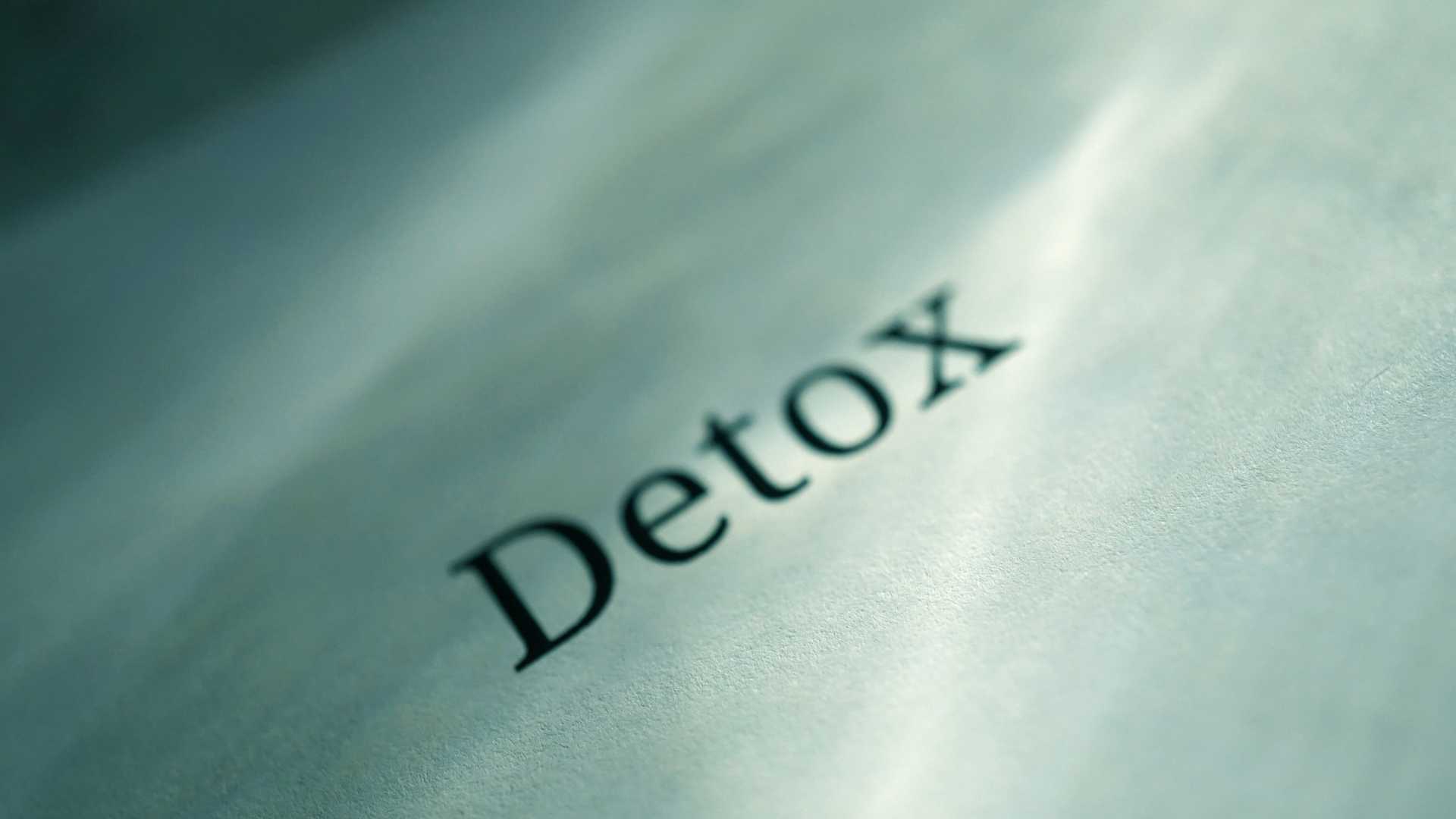Table of Contents
Can detox teas alleviate withdrawal symptoms?
When faced with withdrawal, finding safe and effective ways to alleviate its symptoms is crucial. Detox teas for withdrawal have become a trend, touted as natural allies to “cleanse” the body and facilitate recovery. But really, can detox teas alleviate withdrawal symptoms? While some ingredients may have benefits, relying exclusively on these products to overcome withdrawal symptoms may not be the best option.
In this GateHouse Treatment blog, we’ll explore how these teas work, their potential benefits and risks, and science-backed alternatives to support healthy detoxification.
Understanding Detoxification and Withdrawal Syndrome
Detoxification involves the elimination of toxic substances from the body. When we talk about addiction treatment, it refers to the physical and psychological process that occurs when a person stops using a substance to which they have a dependency. During this process, the body needs to readjust to function without that substance, which can lead to symptoms such as physical pain, nausea, headache, anxiety, insomnia, and even serious complications such as seizures.
Prolonged substance use can change the functioning of the brain, including its ability to produce substances and hormones vital to health. Although detoxifying the body is beneficial in the long term, the process takes time, and individuals may need a period to readjust and restore proper functioning.

While detoxing is crucial for recovery, withdrawal symptoms can be challenging and vary widely. Their type and severity depend on the substances involved, the length of dependency, and the addiction’s intensity.
There are two main types of withdrawal, according to the Substance Abuse and Mental Health Services Administration (SAMHSA): acute withdrawal and prolonged withdrawal.
Acute withdrawal is the initial onset of symptoms after abruptly stopping the use of a substance. These symptoms are usually opposite to the effects of the substance and vary according to the type of substance. For example, the acute period may last 5-7 days for alcohol, 1-4 weeks for benzodiazepines, or up to 14-21 days for methadone.
On the other hand, prolonged withdrawal, also known as post-acute or chronic, refers to symptoms that persist or recur after the acute period. Although less studied, this stage plays a crucial role in recovery, as prolonged symptoms can significantly increase the risk of relapse.
The complexity of withdrawal symptoms often leads individuals to explore other alternatives, with detox teas for withdrawal being a popular option to ease the process.
Detox Teas for Withdrawal: What Are They and How Do They Work?
Detox teas are a blend of natural ingredients, such as herbs, roots, spices, and, in some cases, traditional tea leaves. Detox teas for withdrawal are intended to promote the elimination of toxins from the body and improve the functioning of some organs.
Common ingredients and their benefits
Many detox teas contain a combination of the following ingredients, each with specific properties:
- Dandelion root: Believed to help improve liver health, facilitate digestion and elimination of toxins
- Ginger root: May help relieve nausea, improve digestion, and have anti-inflammatory properties
- Green tea: Rich in antioxidants, although its caffeine content may be problematic for people with sensitivities during withdrawal
- Burdock root: May help with skin problems associated with specific substances
- Senna: An herbal laxative found in many detox teas. Although effective in relieving constipation, excessive use can cause dehydration and electrolyte imbalances

Detox Teas for Withdrawal: Effects on the Body
Detox teas for withdrawal work primarily through three mechanisms:
- Diuretics: By increasing urination, they help eliminate fluids and particular metabolic wastes from the body. However, they can also cause loss of essential electrolytes such as potassium and sodium.
- Laxatives: Ingredients such as senna and cascara sagrada stimulate intestinal transit. While this can be helpful for digestion, excessive use can cause abdominal cramping, dehydration, and laxative dependence.
- Metabolic stimulants: Ingredients such as caffeine and green tea speed up metabolism, which can generate a temporary feeling of increased energy. In the context of withdrawal detox teas, this may be counterproductive, as some people experience sensitivity to nervousness or insomnia.
Detox Teas and Recovery: Limitations and Cautions
Although detox teas for withdrawal may have some mild benefits, it is essential to note that:
- They are not regulated by the FDA or supported by sufficient scientific evidence to treat withdrawal
- Some ingredients may interact with medications and aggravate pre-existing health conditions. According to the FDA, grapefruit juice, a popular ingredient in many detox teas, may interfere with medications, “grapefruit juice lets more of the drug into the bloodstream, increasing the risk of side effects such as liver and muscle damage that can lead to kidney failure.”
- Its “detox” effect is limited, as the human body already has efficient natural detoxification systems: the liver, kidneys, and skin
Benefits and Risks of Detox Teas for Recovery
Detox teas for withdrawal have gained popularity as a natural option to support recovery. While some of their ingredients offer potential benefits, it’s important to approach their use with caution. Here, we explore the benefits and risks of detox teas in greater detail:
Potential Benefits
While detox teas for withdrawal are not a complete solution, certain ingredients may provide temporary relief or support overall wellness:
- Digestive and liver support: Some ingredients may help reduce inflammation, relieve digestive discomfort, and improve liver health
- Nausea reduction: Ginger root, known for its effectiveness against nausea, may be beneficial for those who experience this symptom as part of withdrawal
- Antioxidant effects: Some teas contain antioxidants, such as the catechins in green tea, which help fight cell damage, a common occurrence after prolonged substance use

Associated Risks
Despite their benefits, withdrawal detox teas present significant risks that should be considered, especially for people in addiction recovery:
- Electrolyte imbalance: Many detox teas can increase the urination frequency, leading to the elimination of essential electrolytes such as sodium, potassium, and magnesium. Lack of these nutrients can cause weakness, muscle cramps, and even more serious complications such as cardiac arrhythmias.
- Drug interactions: Some ingredients, such as grapefruit, can interfere with the metabolization of certain prescription drugs, increasing or decreasing their effect and putting the individual’s health at risk. These interactions are of particular concern for those taking medications such as antidepressants, anxiolytics, or withdrawal treatments.
- Excessive laxative effects: Some components can relieve constipation but can also cause diarrhea and vomiting if consumed in excess. This symptom not only contributes to dehydration but can also aggravate the fatigue and discomfort associated with withdrawal.
- Cardiovascular problems: Some teas contain caffeine, which can increase heart rate and blood pressure. For people with a history of stimulant use or underlying heart problems, this can pose a significant risk.
- False sense of security: One of the most significant risks of detox teas for withdrawal is that those who consume them may perceive them as a magical solution, delaying seeking medical or professional help. Taking them without consulting an expert is especially dangerous, as withdrawal symptoms can include severe symptoms, such as seizures or delirium tremens, which require immediate attention.
Science-Backed Alternatives for Withdrawal Symptoms
For effective and safe detoxification, it is best to opt for evidence-based methods:
- Medically supervised detoxification: A team of professionals can monitor symptoms and provide medications or therapies to alleviate discomfort.
- Medication-Assisted Treatment (MAT): In cases of opioid or alcohol abuse, MAT combines medications such as methadone or buprenorphine with behavioral therapy to reduce cravings and prevent relapse.
- Healthy lifestyle:
- Exercise: Releases endorphins, helping to combat the emotional symptoms of withdrawal
- Balanced diet: Foods such as blueberries, spinach, and nuts can support liver health and reduce inflammation
- Adequate sleep: Getting sufficient sleep accelerates the elimination of toxins and improves mood
GateHouse Treatment: A Professional Approach to Recovery
While detox teas for withdrawal can be a mild adjunct to your process, they are not a complete or safe solution to withdrawal. At GateHouse Treatment, we understand the complexity of detox and offer customized programs guided by healthcare professionals to help you get through this stage safely and effectively.
Don’t face recovery alone. Contact us at (855) 448-3588 or online, and take the first step toward a healthier, addiction-free life.
- Fentanyl Misuse: Awareness and Prevention - March 14, 2025
- High-Functioning Alcoholic: 5 Steps to Identify if You Are One of Them - February 23, 2025
- Rehab and Cancer Prevention: How Overcoming Addiction Reduces Risk - February 11, 2025




